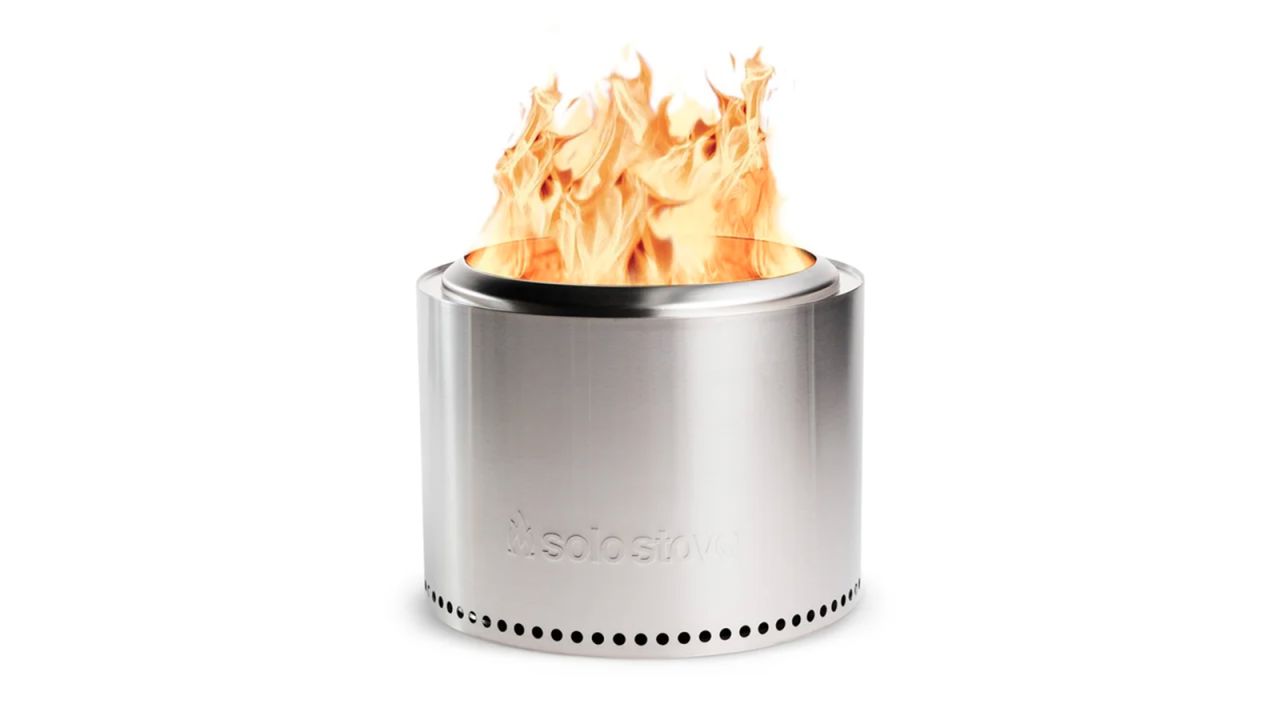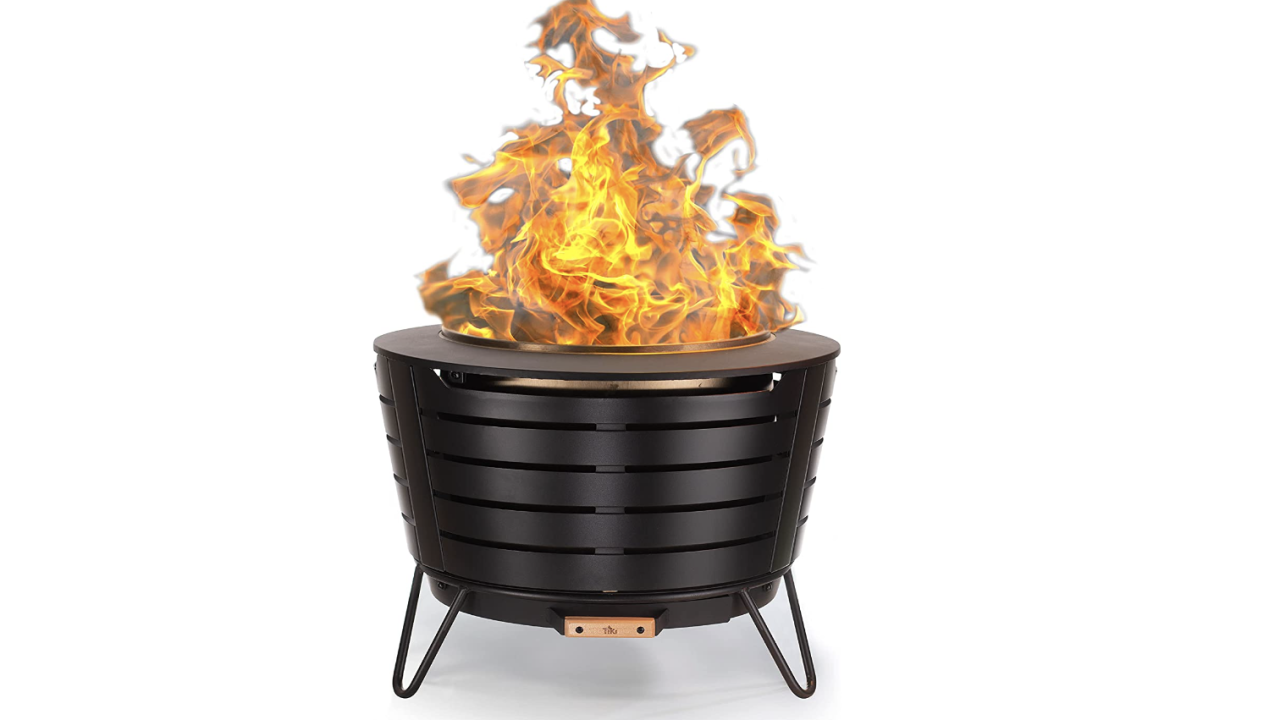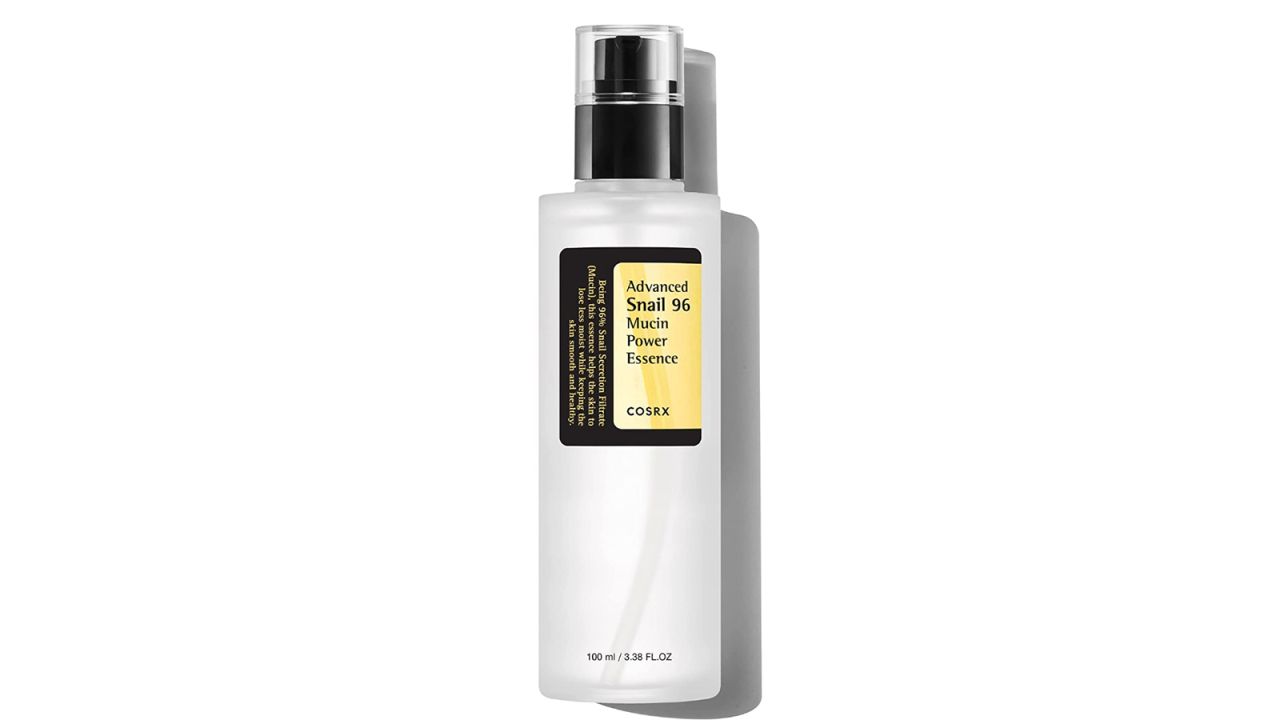The best smokeless fire pits we tested
Best smokeless fire pit: Solo Stove Bonfire 2.0
Best high-end smokeless fire pit: Breeo X Series 24
Best smokeless fire pit for wood pellets: Tiki Patio Smokeless Fire Pit
The best smokeless fire pits bring people together whether camping, at a backyard cookout or on the beach. Thanks to advances in technology and design, there are an increasing number of safer, more effective and more attractive options than ever.
Despite what the name implies, there is no such thing as a completely smoke-free fire but smokeless fire pits generate significantly less smoke than the traditional wood-burning variety.
This is usually accomplished via a double-walled design with holes or vents. These features help redirect smoke, sparks, ash and other debris back into the flames. As a result, you can enjoy the same warmth and ambiance without large amounts of smoke stinging your eyes and making your clothes smell. Smokeless fire pits also tend to be more efficient at burning so they require less fuel, are easier to ignite, and leave less ash behind for easier cleanup.?Many claim to be safer, as well.
Due to the popularity of smokeless fire pits, there are many options from which to choose. But most are not cheap. You can expect to pay a few hundred dollars for warmth and ambiance with minimal smoke. After testing seven of the top fire pits on the market, we can confidently recommend three different models that suit any space, need or budget.
The 2.0 version of the popular Solo Stove Bonfire is a sleek, good-looking fire pit, that's portable to boot. An upgraded base plate facilitates airflow and a removable ash pan is included for easier cleanup. It's also super simple to start a fire with just wood and kindling. This is a smart, efficient choice for anyone looking for a easy way to enjoy a fire in their outdoor space.
This Breeo X Series fire pit has the largest heat capacity and is durable and attractive. Yes, you’ll pay for the ability to grill up to 46 hamburger patties at one time but if you’re looking for an investment, it’s worth the splurge.
The perfect pit for beginner firestarters, the Tiki Patio Smokeless Fire Pit uses easy-to-burn pellets instead of wood (though you can use wood if you prefer). An inner metal cone helps properly position the pellets for optimal burning and we appreciate the elegant design.
Best?smokeless fire pit overall: Solo Stove Bonfire 2.0
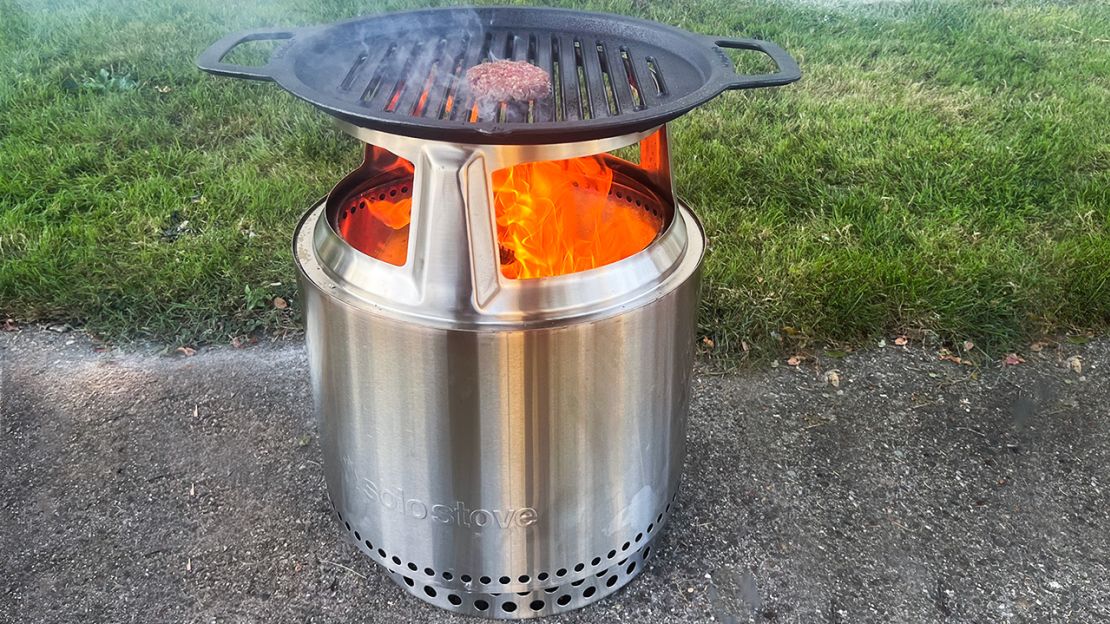
This brand effectively revolutionized fire pits by giving the old, unattractive, bulky models a shiny new makeover — and once you use it, it’s clear they’re not a gimmick. While the clean-lined, modern look of this simple stainless steel cylinder is easy on the eyes, it also performs. The Bonfire is the mid-size member of the Solo Stove fire pit line and is light and small enough to be portable (you can buy a carrying case separately) while still throwing out some serious heat.
Setting it up is easy: just place the main wood-burning barrel on the perforated base ring and set the flame ring on top. The 2.0 model was upgraded with a base plate to facilitate airflow and a removable ash pan for much easier cleanup (no more having to dump the entire unit upside down to empty it).
I was not expecting this little stove to have as much heat output as it did, especially given its small footprint, but the 304 stainless steel offers the best of both worlds by keeping the weight down and withstanding high temps and flames. Solo Stove even backs this with a lifetime warranty on top of a 30-day money-back guarantee. Even if you don’t necessarily plan to travel with your fire pit, it’s nice to have the option, and even nicer not to throw your back out while setting it up.
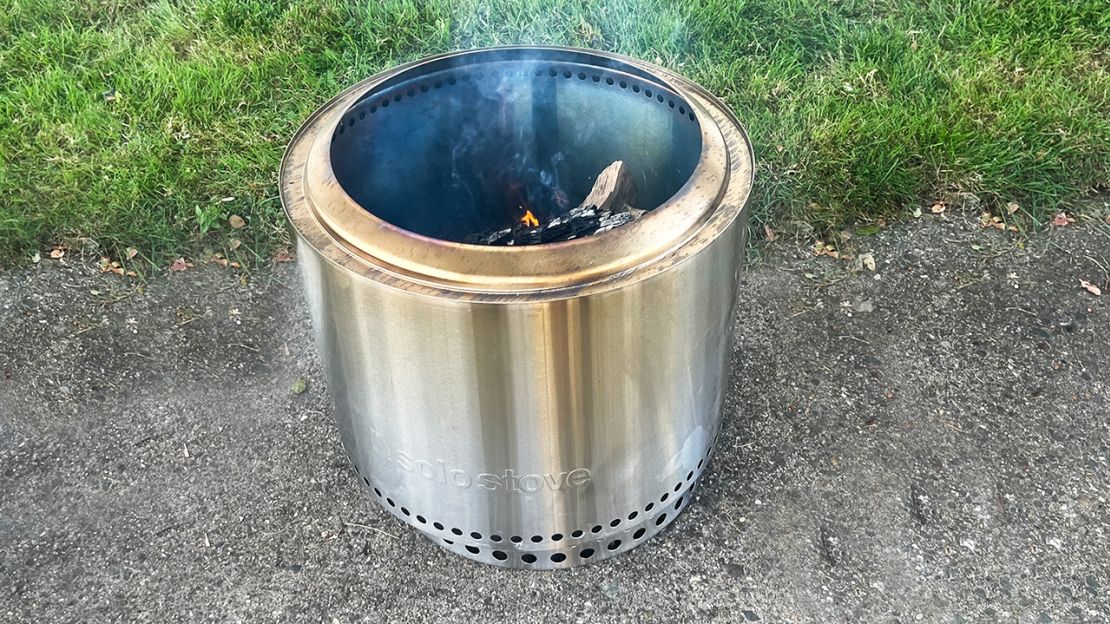
Getting the Bonfire 2.0 going is easy, too. You do not need any special firebuilding skills, just stack dry, seasoned wood in the middle, add some kindling (I used brown packing paper) and light it. Because the inner chamber is designed for optimal airflow, the wood often lights on the first try. I’ve had more difficulty getting a chimney full of charcoal lit than this fire pit. You can also use wood pellets?but will need to purchase a pellet adaptor (Solo Stove has perfected the a la carte business model and has more accessories for its fire pits than any other company, but most of them are useful and pretty enticing.)
I used only two or three logs and got flames maybe 6 inches above the rim of the Bonfire 2.0. And, as mentioned, the heat was substantial as well; I felt the warmth from a good four feet back. Solo Stove sells a larger and smaller model, but for its size and heat output, this option is probably enough for the average-size fire pit gathering.
If you want to cook over an open fire, Solo Stove has you covered there, too. For an additional cost, you can purchase the Hub that sits atop the fire pit and effortlessly transforms it into a cooking surface. There’s no assembly required other than stacking and the connection is secure for cooking. Plus you’re not tied into grilling alone. Solo Stove’s accessories include a cast iron grill (which I tested), griddle and wok. I flame-broiled a hamburger in minutes on the grill surface (which can accommodate as many as six burgers at a time) and felt as safe as if I were cooking at a stove. I will grant that cast iron is heavy and can be a pain to clean and season properly but overall, the Bonfire cooking setup was much safer and easier to use than other fire pits I tried.
One of the other great things about smokeless fire pits is that because they offer such a controlled burn, they put themselves out as nicely and quickly as they start. There was no waiting around for the fire to die or worrying about stray embers that might start a fire. Clean-up the next day was also simple, with less ash and debris in general, and what there was was easily contained in a removable pan that could be tapped out into a garbage can, brushed clean and replaced for next time.
It’s hard to think of anything negative about this smokeless fire pit. I could detract a point or two for the lack of handles but then I, a 5 foot 6 inch, 135-pound woman, did not need them. The stainless finish is easy to clean, and Solo Stove even offers four color options in a ceramic finish that can withstand high heat (they also offer custom etching on the stainless models for an additional cost). But in general, the Bonfire 2.0 is a smart, efficient, and affordable fire pit anyone can use and enjoy.
Best high-end smokeless fire pit: Breeo X Series 24
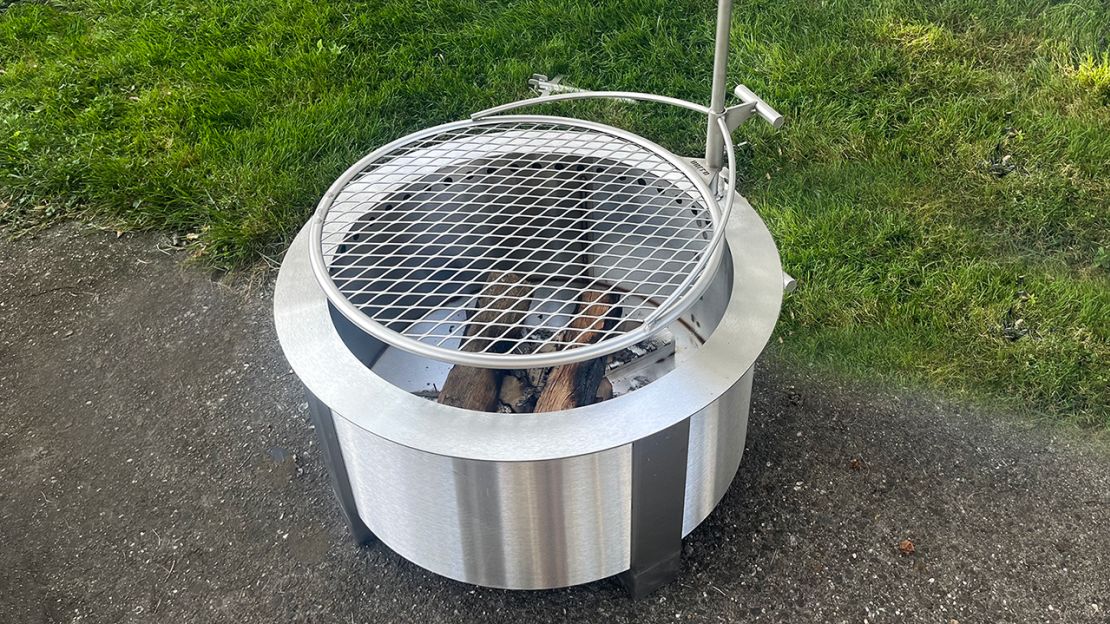
If you’re looking for a more or less permanent fixture in your yard and willing to invest, the Breeo X Series is a seriously well-made, durable fire pit that will generate enough heat for any size crowd. It has among the largest capacity of any fire pit we tested (and the X is the smallest of the series, so if you want to scale up, there are even larger Y and Z models), which means you don’t have to worry about constantly feeding it.
It’s got a simple but attractive design and is made to withstand the elements, with a lifetime warranty to back that up. The company even offers a corten steel finish that’s made to weather and patina over time. The Breeo also has the largest cooking surface of any fire pit, with two grilling surfaces that can handle a total of 46 hamburger patties, making this a party-ready pit. The main drawbacks are the weight, a non-issue if you’re keeping this in place, and the price tag, which ultimately pays for itself in cost-per-use.
Best smokeless fire pit for wood pellets: Tiki Patio Smokeless Fire Pit
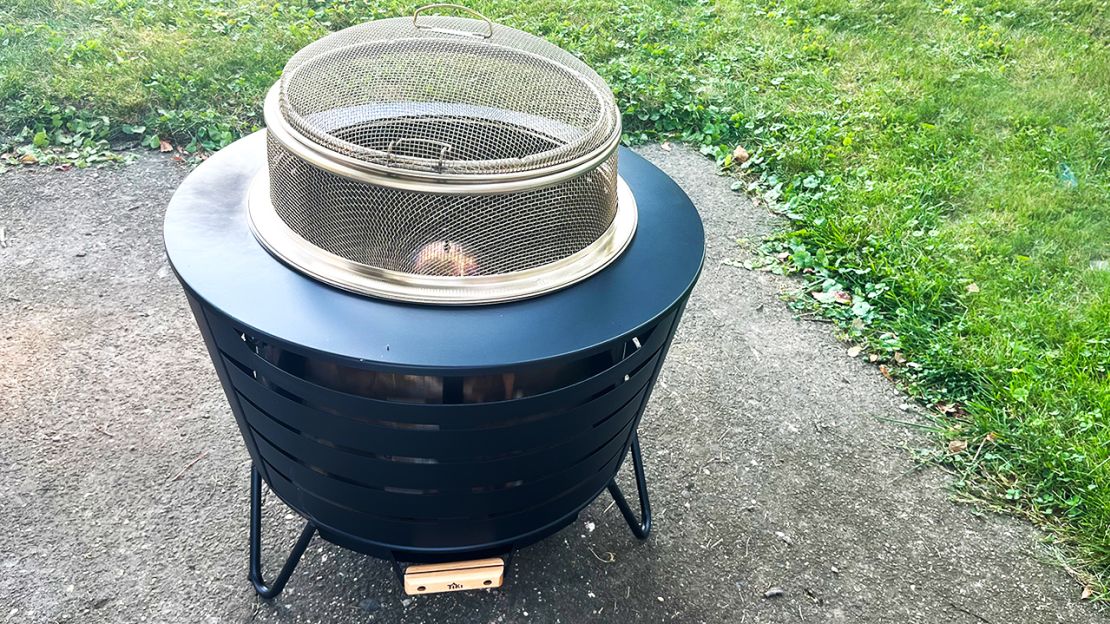
The wood versus pellet debate has been, ahem, heating up — and there are pros and cons to each. Essentially, compressed wood pellets are one of the easiest and most efficient ways to fuel a fire pit. They take less room to store and don’t need special conditions like wood, which needs to be seasoned or kept completely dry for an extended period. When it comes to burning, pellets tend to be highly efficient, catching fire quickly without a starter, but also burning faster once they get going, so you may need to continuously add more to keep the fire going.
This fire pit, however, is designed with an inner metal cone that can be placed in the center to properly position the pellets for optimal burning. It works exceptionally well — I was impressed by how instantly I achieved a roaring, largely smokeless, fire with the provided pellets. If you prefer to use wood, simply remove the cone. The Tiki Patio has the largest inner capacity of any pit tested, and to me, was the most visually striking, more elegant than industrial. The design doesn’t just look good — while other smokeless fire pits tend to pull air in from holes around their base, this one has horizontal slats across its entire body for maximum airflow. It’s also got a set of legs that elevate it above a patio, a pull-out ashtray, and a fire screen to keep embers in check — not that you’ll have many.
It was honestly a lot more than I was expecting from a company with a gimmicky-sounding name. While it did require more assembly than other pits (still not much, just screwing on the legs), this is the pit I recommend for anyone who is an absolute beginner because of how easy and safe it is to use.
How we tested
Setup and design
- We unboxed each fire pit and rated how easy it was to set up.
- We judged the aesthetics of each fire pit’s design and the quality of its materials.
- When researching our testing pool, we accounted for the portability, warranty and price of each fire pit.
Lighting and burning
- We lit each fire pit with four seasoned hickory wood logs and starter (brown packing paper) or the provided pellets. If a fire pit was able to burn both wood and pellets, it was tested with each kind of fuel.
- The flame height and degree of smoke were observed and recorded. When the fire was fully going, heat was assessed by measuring the distance from the pit to where it could first be felt.
- The fires were observed and allowed to die out naturally, then cooled overnight and cleaned the next day.
Cooking
- If cooking or other accessories were provided, those were assessed separately based on how easy they were to install and use, their surface area and the ease of clean up after use.
- We cooked hamburger patties over the compatible pits to determine how fast and thoroughly they cooked and how nonstick the surface was.
What to consider before buying
Location
Most fire pits are at least moderately heavy and bulky. If you want a fire pit you can take on camping trips or to the beach, or even move around your backyard, portability is a factor. Fire pits offer the advantage of making outdoor spaces warm enough to enjoy in cooler weather, but not all are rugged enough to endure harsh weather or come with a protective cover, so plan accordingly. Additionally, many fire pits cannot safely be used on a wood deck or other flammable surface and may require a heat-proof stand depending on where you want to place it.
Fuel source
Do you have a preference for wood or pellets? The latter often burns more efficiently and hotter, with less ash but you may need to tend the fire more carefully. Pellets can also be easier to store but will cost you more in the long run. Some smokeless fire pits also use charcoal or even gel fuel.
Heat output
One of the major criticisms of smokeless fire pits is that, despite the fantastic flames they produce, they generate less intense heat than traditional wood-burning fire pits.
So if you have previously used a traditional fire pit, you may not be prepared for the slightly smaller circumference of warmth generated by a smokeless pit.
Cooking surface
In addition to providing warmth, fire pits can give your food a unique woodsmoked flavor. Many models offer cooking kits so you can go more gourmet than S’mores. If this is something you plan to do often, you’ll want to consider how the different attachments work, how easy they are to clean, how much cooking space is provided and what kind of flexibility they offer.
Aesthetics
Fire pits, including smokeless fire pits, have been around for centuries, and work pretty much the same as they did when they were simply pits dug in the ground. Today, though, you’ll see a much wider variety of design options, and let’s face it, if this is something you’re leaving out in your backyard, you want it to look good. At their most basic, fire pits tend to resemble large metal barrels reminiscent of an outdoor turkey smoker, but you can find more attractive and still functional options. Finishes include stainless and carbon steel, and some have a matte heat-resistant powder coat, or special finish designed to patina over time.
Other smokeless fire pits we tested
While this affordable fire pit from Blue Sky Outdoor Living had its positive qualities, it didn't match the Solo Stove's performance.
This is a decent entry-level fire pit, and improvements including a lift-out ash pan are very user-friendly. Ultimately, the Solo Stove outperformed it in terms of efficiency and smoke output and is in the same price range but the Blue Sky has a similar performance and somewhat unique look with a powder-coated matte black faceted exterior that some users may prefer.
We've extensively reviewed the BioLite FirePit+ — even pitting it head-to-head against Solo Stove — and the noise of its motor has always detracted from our assessment.
While some campers seem to enjoy this lightweight, high-tech fire pit, which uses a USB rechargeable fan to aerate the fire and can use Bluetooth to monitor it, the device simply doesn’t generate as much heat as other smokeless pits, plus the whir of the motor is distracting.
Cooking is a plus on the Burly Scout, but the pros end there. It's a pricey model that's hard to find in stock.
This fire pit is solidly constructed and the cooking setup was among the best we tried. This is because it can be adjusted to whatever level above the flames you prefer. However, it doesn’t have a lot of the advantages of other smokeless fire pits, such as portability or even a simple removable ash pan, and it was the most expensive model we tested.
Starting a fire with the Flame Genie pellets was a frustratingly lengthy process, and we would have liked to see them burn longer.
This model feels older-school with the stackable components, and even when using the provided pellets, it took a while to get going and didn’t burn as long as other smokeless fire pits. It also got several reviews describing rust issues.

